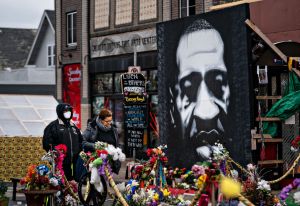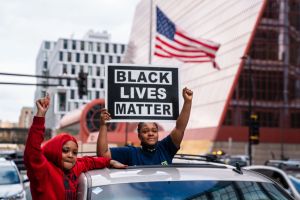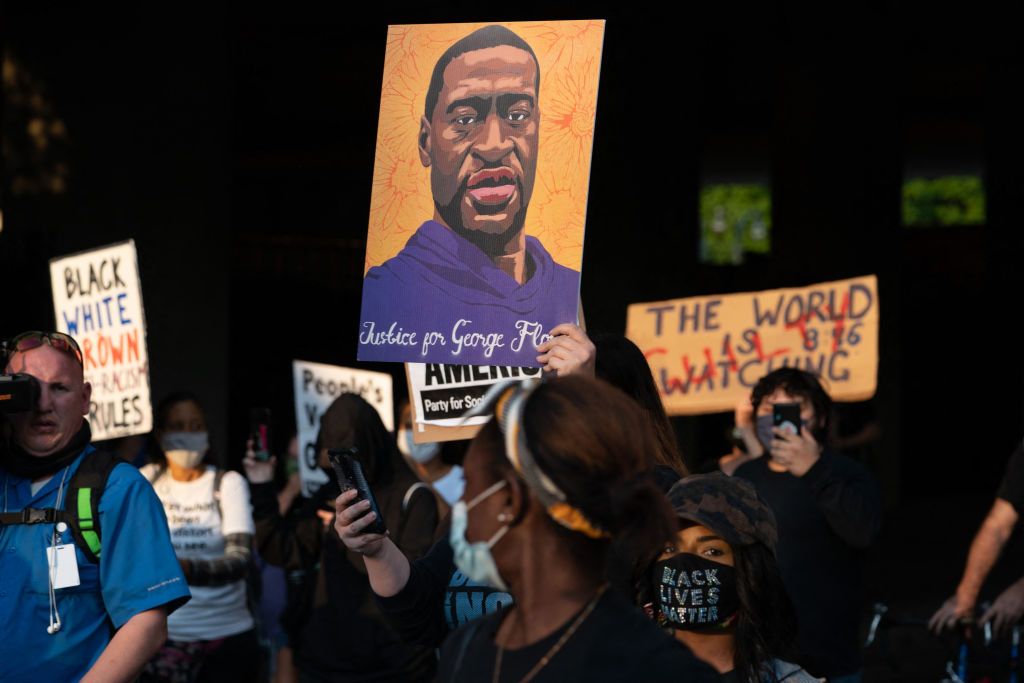After The Derek Chauvin Verdict, We Can Push Local Governments To Change Policing

Source: Jason Armond / Getty
Moments after Derek Chauvin was convicted on all counts in the murder of George Floyd, a collective exhale of relief went out across the nation. “We can breathe again,” Floyd’s brother Philonise Floyd said, a poignant echo of Floyd’s final pleas for air as he lay dying on a Minneapolis street.
Yes, we can breathe again. And now we have to act.
The talking point among political pundits is that the verdict might just give us the momentum needed to get the George Floyd Justice in Policing Act over the finish line in Congress. I hope so, although the bill faces significant hurdles. I also believe we are underutilizing the U.S. Commission on Civil Rights, which in the past has used its subpoena and investigative powers to root out violations.
But rather than just waiting for the federal government to move forward, let’s take a complementary path. Policing is first and foremost a local function. This is the time to bring all our influence to bear on our state, city and town governments to change how it is done. Break the mold. Commit to a new model. Face systemic racism at home where it lives, and root it out. Now.
I think of what’s happening in Ithaca, New York, where a young Black mayor is poised to make some of the biggest changes in policing in the nation’s history. During the very first week of the Chauvin trial, mayor Svante Myrick led his Ithaca city council in approving a proposal to do away with the city’s traditional police force and replace it with something entirely new.

Source: Jason Armond / Getty
In the coming years, Ithaca plans to dismantle its police department and stand up a new Department of Community Solutions and Public Safety, in which some personnel would carry weapons – and, critically, some would not. The city will retire its ferociously armored and intimidating SWAT vehicle. The new department will be led by a civilian supervisor, and will concentrate on nonviolent de-escalation of situations where people are at risk. Supporting and restoring trust among the city’s communities of color, homeless residents, LGBTQ residents and residents with disabilities will be a central focus.
This is a groundbreaking and serious solution, born of the anguish surrounding the killings of George Floyd, Breonna Taylor, and so many others. It goes significantly farther than other well-publicized steps toward reimagining public safety, including Oregon’s draft of police reform legislation and the restructuring of police departments in Camden and Newark, New Jersey.
It deserves to be a model for the nation — and not surprisingly, it’s facing political pushback. Some of that is fear; some comes from those who are fine with the status quo.
It will take the courage of local leaders like Myrick and pressure from citizens like ourselves, who reject police brutality and racism as business as usual, to overcome political opposition. That is our charge today, after the Chauvin verdict: to use the energy of this moment to be the strongest advocates we can for changing how policing is done in our own communities.
We do that by opening our eyes and ears to how police are serving us today and by organizing to right wrongs. Are police in schools? What are they doing there? Are there options for unarmed responses when the crisis is one of mental health, not criminality? There should be.
As we take up this charge, we are painfully aware that we are entering a season of bitter anniversaries. The spring and summer of 2020 saw not just the murder of George Floyd and Breonna Taylor but also the killing of Rayshard Brooks and the maiming of Jacob Blake. Remembering these tragedies and those that continue to follow, including the killing of Daunte Wright just days ago, should rekindle our determination to make real change. It should turn us away from half-measures.
In the words of Minnesota Attorney General Keith Ellison, spoken after the Chauvin verdict, “Now the cause of justice is in your hands — and when I say ‘your hands’ I mean the hands of the people of the United States.”
Let us heed those words.
Mary Frances Berry is a Professor of American Social Thought, History, and Africana Studies University of Pennsylvania, and former Chair U.S. Commission on Civil Rights, board member at People For the American Way.
SEE ALSO:
A World Where George Floyd And Ma’Khia Bryant Would Still Be Here Is A World Without Police
‘Justice Was Not Done’: Ma’Khia Bryant’s Family Remembers Her As ‘Very Loving’
[ione_media_gallery id=”4142522″ overlay=”true”]

